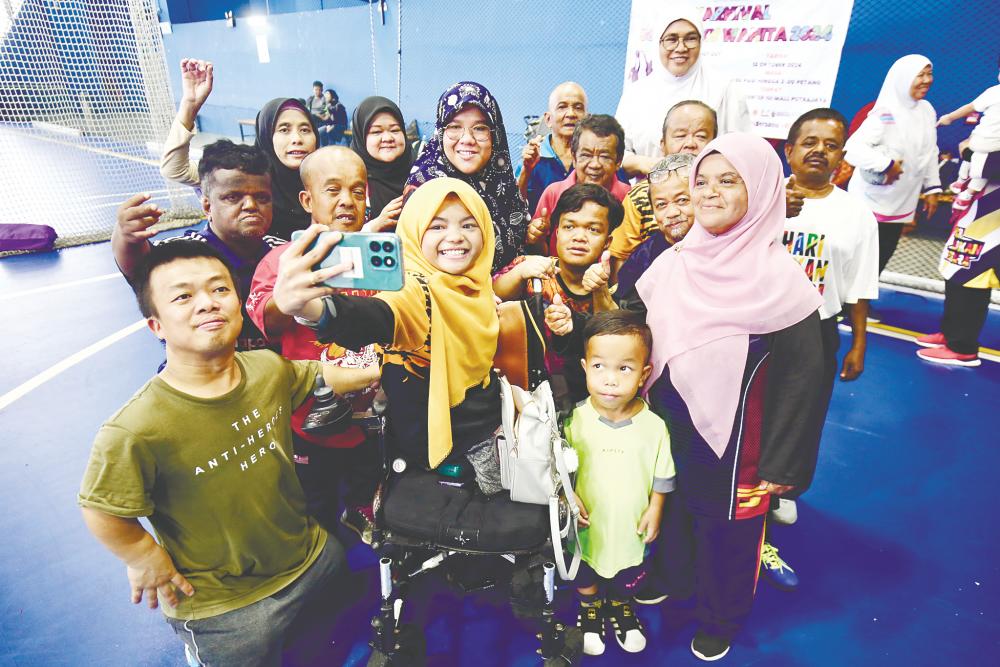PETALING JAYA: An academician has called on the government and healthcare providers to adopt a more holistic approach to meeting the nutritional needs of the 1,400 individuals with dwarfism, especially as the number of these little people continues to grow.
Universiti Teknologi Mara Faculty of Applied Sciences senior lecturer Dr Azizah Othman said while the growing number of dwarfism cases is worrying from a health perspective, it also requires further study, and they need improved medical care and more public acceptance.
She said dwarfism, which is abnormal smallness, is characterised by proportionately or disproportionately small limbs and torso.
“We can greatly improve the health and well-being of individuals with dwarfism through the creation of specialised nutritional guidelines, enhanced access to education and resources, healthcare provider training, improved availability of supplements and the establishment of monitoring systems.”
Azizah said dwarfism is often the result of genetic abnormalities. Achondroplasia, a hereditary genetic condition affecting bone growth, is the most common form of the disorder.
“It is caused by a mutation in the fibroblast growth factor receptor 3 gene. In contrast, proportionate dwarfism is often caused by growth hormone insufficiency, which can be treated with hormone therapy during childhood.”
She said if both parents have achondroplasia, their child has a 25% chance of being of average height, faces a 50% risk of having achondroplasia, and has a 25% chance of dying from double-dominant achondroplasia.
“Due to their distinct metabolic and physiological traits, people with dwarfism, especially those with achondroplasia, have different nutritional demands than those of the general population.
“Additionally, the development of a food guide pyramid tailored specifically for those with dwarfism could be an effective way for the government to ensure their nutritional needs are met,” she said.
Azizah added that obesity and weight management are the major concerns for individuals with dwarfism due to their shorter stature and potential mobility limitations, which reduce their calorie needs.
“Without proper diet management, they may face long-term health risks such as bone and joint issues or cardiovascular disease.
“Additionally, the little people often have reduced lung capacity and smaller chest cavities, making cardiovascular health more vulnerable to complications. Excess weight worsens such issues, increasing the risk of heart disease, hypertension and stroke.”
Azizah said while government assistance for these individuals, who are classified as differently-abled, is adequate in some areas with good accessibility and support, there is still a need to improve or expand facilities in other public spaces to ensure equal access and inclusion for them.
Malaysian Dwarfs National Organisation president Jasmie Shafiee said individuals are classified as dwarfs if they are 142cm tall or shorter for males, and 138cm or shorter for females, and so everyday tasks such as using bank counters and ATMs can be challenging.
“We frequently deal with negative comments from others. Sometimes, we also become the (subject) of their jokes, which is hurtful. But there are some who show support and kindness as well.”
Jasmie said as of 2023, there were about 1,400 registered individuals with dwarfism in the country, which is a steady increase from 1,312 in 2022, 1,300 in 2021 and 1,265 in 2020.
He said while the government provides support to those classified as differently-abled, including little people, they often lack organisational backing and have to seek financial assistance on their own.
“The Social Welfare Department plays a crucial role in the registration process, which is important to ensure support for individuals with dwarfism. We strongly encourage little people to register with the department, as many may not realise that dwarfism was officially recognised as a disability in 2007. Some of them feel embarrassed or face opposition from their families when seeking help, despite our intention to help,” he said.









